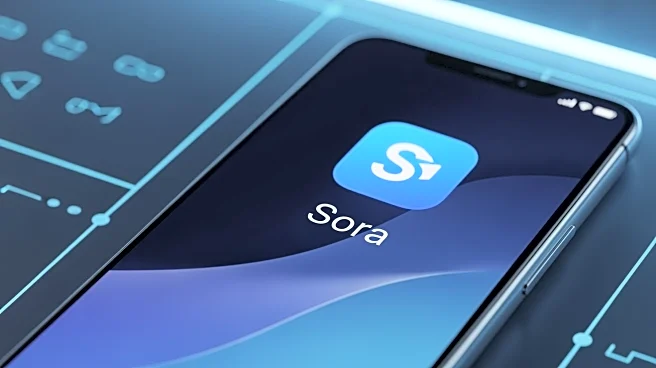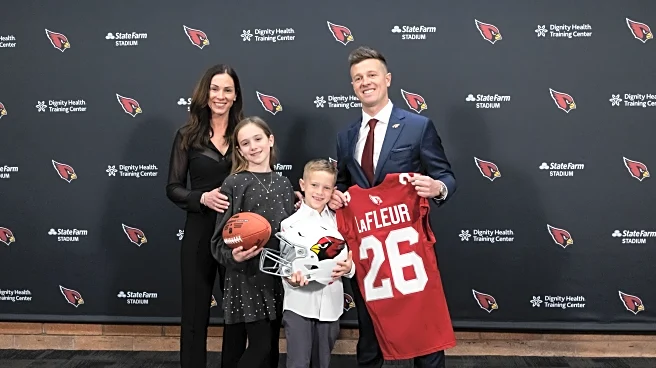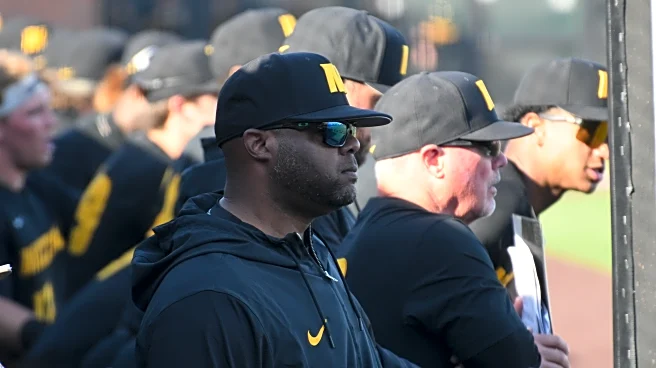What's Happening?
OpenAI's Sora app, an AI video generator, is now available on Android in the U.S., Canada, and several other regions. Initially launched on iOS, Sora quickly gained popularity, amassing over 1 million downloads in a week. The Android version retains features
like 'Cameos,' allowing users to create videos using their likeness. Sora aims to compete with platforms like TikTok and Instagram by offering a short-form video sharing experience. However, the app has faced criticism for its handling of deepfakes, leading to policy changes and strengthened guardrails.
Why It's Important?
The expansion of Sora to Android broadens OpenAI's reach in the competitive short-form video market, challenging established platforms like TikTok and Instagram. By leveraging AI technology, Sora offers unique video creation capabilities, potentially attracting a diverse user base. The app's rapid growth underscores the increasing demand for innovative digital content tools. However, the controversy surrounding deepfakes highlights the ethical and regulatory challenges associated with AI-driven media. OpenAI's response to these issues will be critical in maintaining user trust and compliance with legal standards.
What's Next?
OpenAI plans to introduce new features to Sora, including character cameos and basic video editing tools. The company is also involved in a legal dispute over the 'Cameo' feature name, which may impact future branding and marketing strategies. As Sora continues to evolve, OpenAI will need to address ongoing ethical concerns and ensure robust content moderation to prevent misuse. The app's success will depend on its ability to innovate while maintaining a responsible approach to AI-generated content.
















